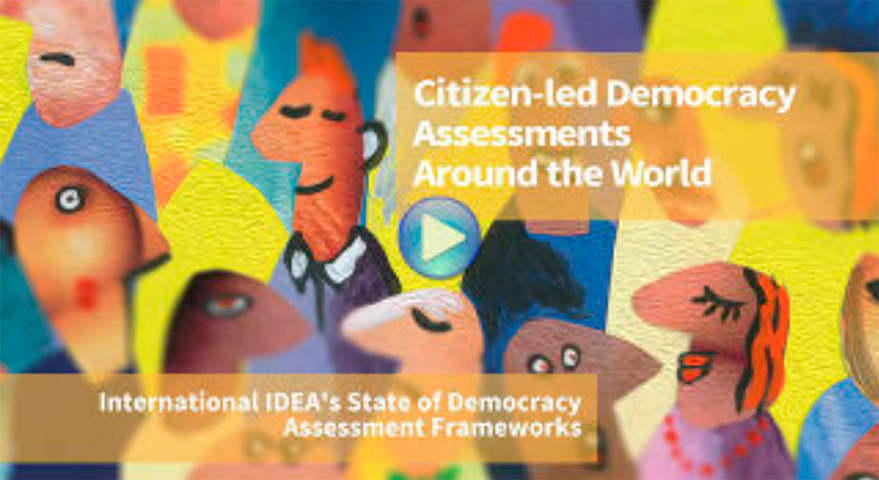Citizen-Led Approach
Citizens should be placed at the forefront of any democracy assessment process, as they best understand their countries’ dynamics, culture, history and priorities.
The State of Democracy assessment frameworks place citizens at the forefront of any democracy assessment process, with the aim of supporting home-grown policy initiatives and internally driven reform agendas. As such, they move away from country ranking and external judgement and put local ownership at the center of their methodology. This approach is based on the belief that citizens themselves are the best assessors of their own democracy.
The assessment is a two-dimensional process that combines research with inclusive dialogue and debate. Any members of the public with an interest or stake in improving democracy can initiate the assessment process, mobilize resources for it and use the assessment framework. These initiators can range from academics, local council members, government officials, media and civil society organizations to local politicians, local activists and members of minority groups.
The citizen-led approach is reform oriented and aims to both assess the quality of democracy and serve as an opportunity for citizens to further develop and deepen their democracies.
Goal: Reform
Principles: Popular Control and Political Equality
Leadership: Locally led by a diverse assessment team
Method: Balance Between Research and Dialogue

Submit feedback
Submit questions or comments about the Data or Tool
How did you find out about this? What do you like about it? What did you expect but did not find in using the Data or Tool?
To see how we handle your personal data, please read our Privacy Policy.
